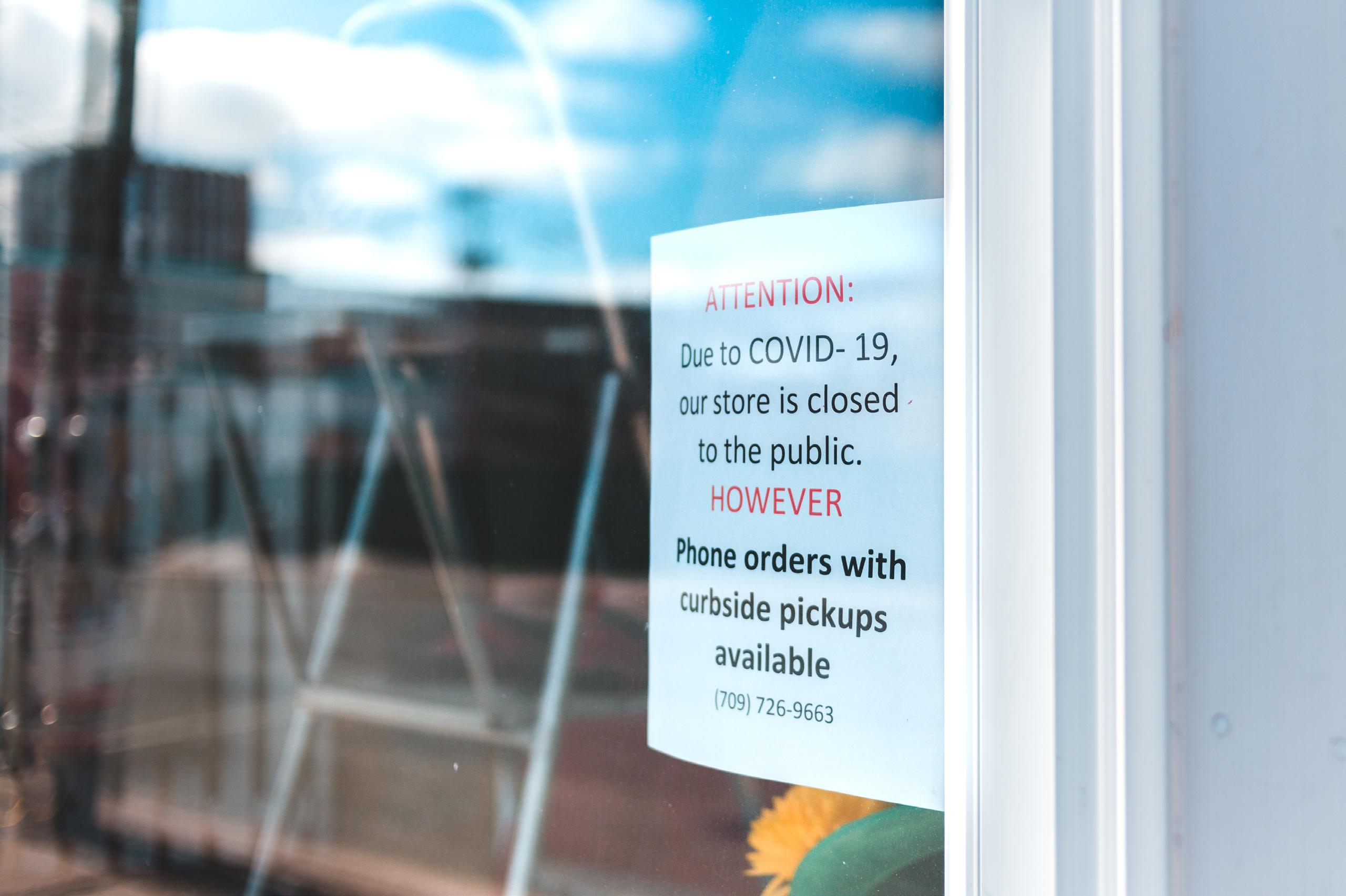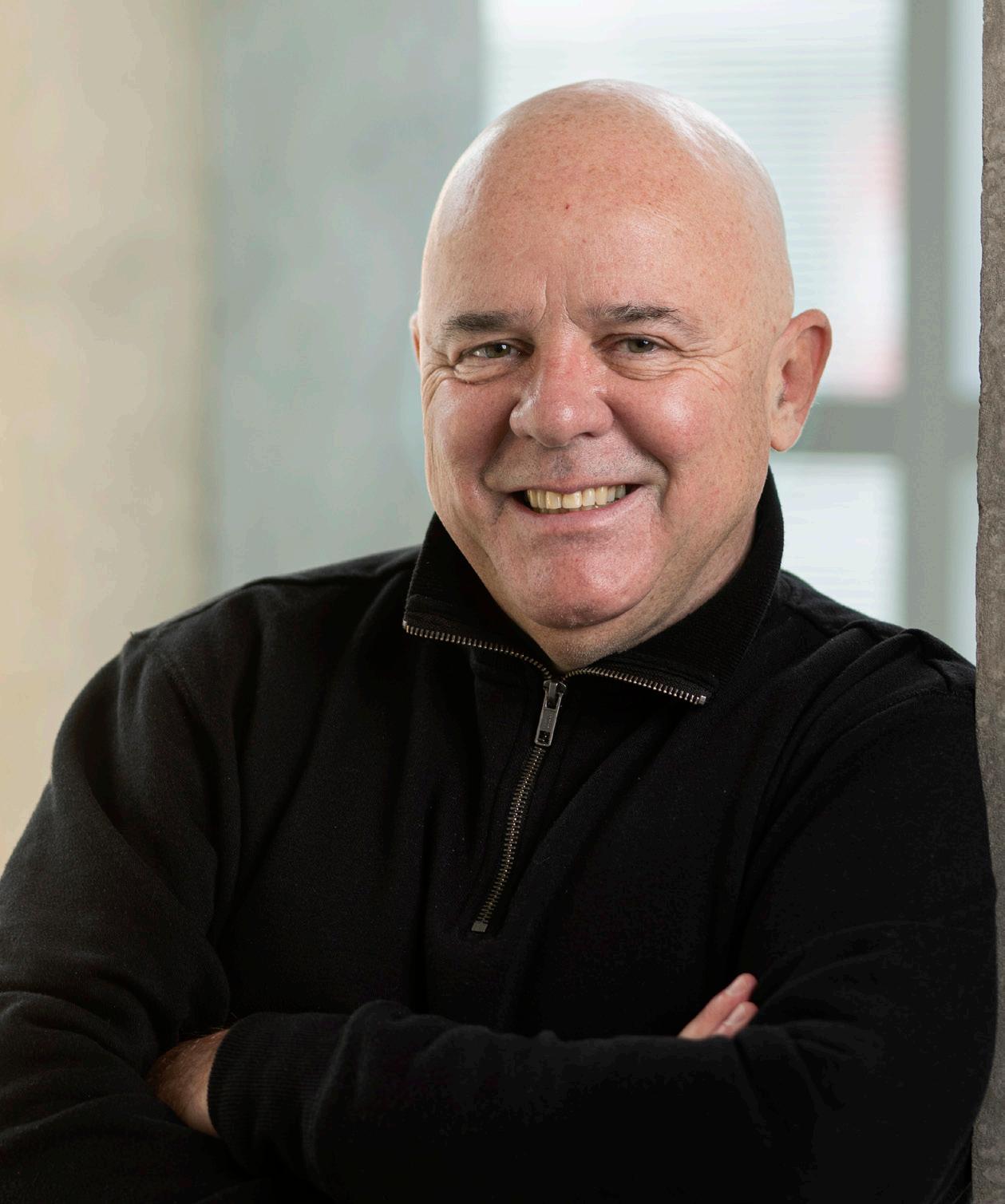
19 minute read
Graduate Student Research: The Sprott School of Business Celebrates 25 Years of the PhD in Management Program
to the distinguished faculty who are leaders in their research areas who are often conducting groundbreaking research. Moreover, there is absolutely a strong collaborative and synergistic milieu. Fostering a multidisciplinary approach to learning and developing quality research is essential to prepare students with the tools to move forward postgraduation; elements that were deemed essential from the inception of the program. Students work with faculty across many disciplines combined with a strong emphasis on deploying industry expertise and in working closely with businesses to truly understand their needs to develop strategies for better business practices.
Robert Mittelman, (PhD/15), now acting Dean of the Faculty of Management at Royal Roads University in Victoria, B.C., reflects: “The Sprott PhD program was an incredible challenge as we dove into theory and literature like never before. And, the most valuable take-away [for me] was the interdisciplinary research and collaborations. If we are going to tackle [grand issues], we have to look beyond our traditional disciplinary borders.”
Advertisement
This sentiment is echoed by Papadopoulos: “One of the greatest sources of joy I have had is working with our doctoral students and colleagues. The [PhD] program has created synergy, it has helped bind us together, to enhance Sprott’s collegiate spirit, and to increase tremendously our research and teaching capabilities.”
What’s more, the PhD program is highly competitive worldwide. Admissions are tough and program design and requirements are intensive, with nine mandatory courses, a comprehensive exam, thesis proposals and dissertations, a teaching certificate, and participation in research seminars. There has been, and continues to be, a strong impetus for creating a quality program that produces exceptionally qualified graduates.
Over the past year, with the COVID-19 pandemic and other world events, many new challenges and substantive impacts to the state of the economy, businesses, and society have emerged. The Sprott team, consequently, understands that it is essential to keep the program proactive in the needs of teaching pedagogy and deliver the PhD program in novel ways.
The mobilization of students to remote learning and integrating technology into the teaching regime has been both challenging and full of opportunity. The school knows that they must be leaders in change—with a focus on adaptability and maximizing the benefits of how technology can expand the connections and networks within their research sphere. This means adapting teaching during a time that traditional face-to-face interactions and sharing of ideas is not possible.
The Dean of Sprott, Dana Brown’s advice for doctoral students is that “it’s not just about the quality of your research, or your ability to teach, or your CV as it’s written, it’s who you are as a person. It’s about building relationships and joining a community.”
Sean Lyons (PhD/04), now Associate Dean, Research and Graduate Studies, of the Gordon S. Lang School of Business and Economics at the University of Guelph, agrees, “There has been a rapid change and the School needs to reimagine how we teach, train, and engage with students, the research we do, and how it impacts the world.”
Looking into the future, the Sprott team concur that relevancy is key. The faculty continue to evolve and adapt their research to not only stay substantive, but more so, be preemptive to the needs of business and society—thinking holistically about the purpose of business, the responsibility that Sprott has to globalization and creating an inclusive growth pattern, knowing they have a responsibility to shape what the future of business looks like.
Shantanu Dutta, (PhD/06), now Interim Vice Dean, Research, of theTelfer School of Management at the University of Ottawa, emphasizes “that there are challenges, but also opportunities to leverage technologies for collaborative work with academics and business leaders from around the world.”
The Sprott School has consistently demonstrated exceptional standards of research, teaching, higher learning, and industry relationships. But what’s more, the Sprott team has a truly unique quality and is what makes the PhD program particularly special. The faculty and students alike see their experience in the program as one akin to having a family. There is an extremely strong sense of pride from faculty and alumni when speaking about the program—a resounding concurrence on how the Sprott program is a community with a strong focus on quality, relevant, and forward-thinking research.
As Ji states: “As a family, I believe it’s important to remember our past—our roots—in order to move ahead and embrace the future.” And that is worth celebrating!
Student Feature
Jade Han
Employees and their Leaders: Relationship Matters
Jade Han is one of the Sprott School’s PhD students who, like most, are extremely busy researching and publishing and looking forward to graduating. Han knew early on that she loved academia; a drive that started in her homeland China where she earned her BA in Business Administration.
From there, Han completed not one, but two master’s in Business (Human Resources and Finance) from the University of Amsterdam. Han’s drive didn’t stop then; she went on to win awards and earn funding to pursue her PhD here at Sprott. And now, under the supervision of Dr. Greg Sears, Han’s research program is quite robust and progressive. With two main research streams, Han’s research intersects between Human Resources and Organization Behaviour (HR/OB) and International Business. Han is highly interested in understanding what makes a good leader, a happy employee, and what contributes to successful leaderfollower relationships. Concurrently, she is exploring how individual personality differences may impact expatriate employees’ adjustment to working abroad. As the finish line to completing her PhD fast approaches, Han is excited for the next stage in her career—staying in academia and pursuing her love of research and teaching at a university.
You have lots of irons in the fire—let’s expand on the first area of your research.
Within the research looking at leaderfollower relationships, I’m doing a couple of things. Firstly, I’m investigating which employee personality traits contribute to building high-quality relationships between followers and their leaders, as well as the impact of leader behaviour on employee well-being in the workplace. I have conducted research investigating how specific employee individual differences in personality traits, such as career resilience and negative affectively, are associated with work behaviours and can be used as potential indicators of employee well-being. I love the idea of bringing together psychology and human resources management, and the goal with my research is to contribute to our knowledge of how to achieve high levels of employee well-being and positive feelings toward their leaders. When businesses can better identify how to empower leaders to better manage by understanding the psychological aspects of their employees, this will inevitably have direct benefits to the organization because it establishes a healthy and productive workforce.
How is this research expanding?
The second prong to this area of my research, and what I am very excited about, is that I am tapping into something new in the business world. I want to offer new insights on the topic of leader-
follower relationships by exploring a relatively new concept—perceptions of ambivalence in leaderfollower exchange relationships. In other words, I want to understand when an employee exhibits ambivalence—having both good and bad feelings about the relationship with their leader—what does it do to affect the employee’s subjective evaluation of their level of job satisfaction and well-being? There is robust research being done to understand ambivalent feelings towards social relationships (e.g., friendships and relationships with family members), however, research exploring the feelings of ambivalence towards the relationship with one’s leader has been limited. Our results show that employee ambivalence toward their leader does indeed diminish that employee’s feelings of well-being in the workplace regardless of whether they rated the overall relationship with their leader as good or bad. So, understanding employee perceptions and how they may influence leader-follower relationship success allows organizations to develop solutions and strategies that improve both leadership performance and employee well-being.
Can you tell us about your research on expatriate adjustment?
As more and more companies expand their business internationally, there is a need to send their employees around the world to work. I’m interested in these employees’ well-being—particularly how do we evaluate personality traits that can be predictors of expatriate success in the host country. Studies indicate that the average cost of expatriate failure is around $225K per person. So, it’s not only a financial burden to companies, but the emotional impact of failure on the employee is significant as well. My research can help improve the success of expatriates by improving the selection and training process.
My research is a large meta-analysis of previous empirical studies and using the foundation of socioanalytic and social learning theories, I show that the big-five personality traits (conscientiousness, extraversion, agreeableness, openness, and emotional stability) as well as cultural empathy, cultural flexibility, emotional intelligence, and cultural intelligence, are all key factors that will positively relate to expatriate adjustment. Personality traits can be essential determinants of individual’s fundamental motives: getting along with others, getting ahead to achieve status, and finding meaning. These motives enable expatriates to develop and maintain interpersonal ties in the host country, spend time on work assignments, and make sense of their international experiences. Furthermore, people high on emotional intelligence and cultural intelligence are better at the learning process and can function effectively within a new culture and interact effectively with host-country people.
The second vein in this research examines how national cultural factors influence expatriate well-being and success. Our results suggest that personality traits have a more significant positive impact on adjustment when the cultural distance is short: When the host country is culturally similar to the home country, an expatriate can more effectively adjust. Conversely, when the expatriate works in a culturally different country, we observe more difficulty to overcome the challenges to adapt—and this is true even for those who are high on cultural intelligence.
What’s great about these findings is that companies can add value to expatriate selection by developing more formal selection tools. By understanding which personality traits are more likely to foster employee success in a new country, a company can focus their modelling to bolster confidence and motivation in employees—helping them to better prepare, adapt, and perceive their working and living experiences more positively. This of course, will lead to expatriate success and well-being.
Supervisor: Greg Sears, Associate Professor, Management
Student Feature Blazing Trails and Throwing Away Boxes: A Sprott PhD Student Taking Chances
“Instead of thinking outside the box, get rid of the box.” - Deepak Chopra
Meet Nada Elnahla—one of those people who has indeed thrown away the box. A genuine, brilliant, and talented woman, Elnahla is blazing trails while amassing a robust, eclectic, and free-thinking research program as she completes her PhD in marketing at Sprott.
Elnahla’s life and academic journey started in Egypt where she earned her PhD in comparative literature. But, after some years as an assistant professor in English literature at the Alexandria University, Elnahla and her family made the decision to immigrate to Canada—a move she knew would come with major sacrifices. One of them: she would have to rethink her career in academia. With few opportunities available in Canada to teach English literature at the postsecondary level, Elnahla was faced with the decision to learn a new discipline. She had to start from scratch.
Based on a series of events and people she knew, she was guided toward Dr. Leighann Neilson, Associate Professor in marketing at Sprott because Neilson was known to have a interdisciplinary approach to her research and Elnahla had some ideas of how to integrate her expertise in comparative literature into the marketing arena. Elnahla and Dr. Neilson met in a Starbucks café one afternoon, and by the end of the meeting it was a sealed deal—they clicked instantly and knew they would work well together. And so, marketing is where Elnahla has found a new passion and is excited to begin the data-collection phase of her research project. And, her project? It’s extremely interesting. Moreover, Elnahla is blazing trails in this area of marketing research and theory. In fact, her research area is so novel, she’s coined a new term to describe what it’s about: Retaillance. It means surveillance in the retail sector.
Elnahla’s research focuses on big chain retailers—the brick and mortar stores, such as Walmart, IKEA, Canadian Tire, and Loblaw as examples, and Elnahla was surprised to learn just how much surveillance happens within a retail setting. Surveillance can include what we all may expect, such as cameras and employees tracking our movement mainly for security reasons. But retailers are also tapping into the rapidly adapting and advancing technology and now surveillance can include anything from cooler doors displaying advertisements of frozen food that change depending on your age, sex, time of day, even your ethnicity; free WiFi that allows the store to track your movement through your phone; points cards gathering personal data; even facial recognition technology. One of the retailers Elnahla is including in her research, MANGO clothing, is introducing a new kind of surveillance where they’ve partnered with Vodaphone to create the digital fitting room: you don’t actually try on the clothes, instead, the augmented mirror simulates this process.
Elnahla is approaching this area in a big picture, exploratory way; uncovering truths around retail surveillance where little is known. Through surveys and interviews with both consumers and retailers, Elnahla is elucidating what consumers know about retail surveillance, what they are willing to accept, as well, if consumers are aware of regulations and laws pertaining to retail surveillance. Moreover, Elnahla wants to understand if surveillance technology

Nada Elnahla
has a negative or positive effect on consumer behaviour—when will consumers accept, resist, or even negotiate with retailers’ surveillance strategies? There is significance in knowing all of this—both for the consumer and the retailer. A retailer knowing your shopping history and frequency, where you live and how much money you make, could result in vulnerabilities to the consumer and can ultimately lead to various kinds of discriminations, where retailers focus their marketing and advertising to a certain, more preferred kind of demographic. For retailers the risk comes in the form of trust. If consumers feel that retailers have tipped the scales too far and there is a feeling of personal violation or unfairness occurring, then that consumer may choose to shop elsewhere and the retailer has now lost customer loyalty and therefore, of course, revenue.
What’s really fascinating with this untapped area of marketing is that it is a double-edged sword of sorts. Retailers’ goal for surveillance is to keep their stores and customers safe, but also to create a positive and valuable shopping experience for customers. The ultimate question is: what amount of surveillance is too much? Elnahla sees her research expanding well beyond this initial project, such as working to help shape regulations and laws that are in sync with surveillance technology to help consumers have more informed shopping experiences—and so everyone can walk out of the store happy. Elnahla has also adjusted her research framework to address the COVID-19 crisis—how will this change or modify consumers’ reactions and feeling toward surveillance? Will it push consumers to be more accepting—or rejecting—of extra safety measure and data collection? Concurrent to the surveillance research, Elnahla is actively collaborating with other faculty, cross-pollinating her expertise to look at how the fields of marketing and comparative literature can coexist. More specifically, Elnahla examines how managers can use scenarios from fictional literature to help navigate through issues with employees on sensitive issue such as mental health and drug addictions. Further to this, and apropos to her “throwaway-that-box” thinking, Elnahla is examining the end stage of marketing—the disposal of items—specifically in the context of how immigrants feel about disposing of their personal items when moving abroad, which introduces an additional emotional element because often disposal is out of necessity rather than desire.
Elnahla is a person who has taken an immense amount of talent (she’s also a highly-acclaimed classical pianist!), academic experience, and intellectual acumen to create such unique narratives within her research sphere—blazing trails and throwing away boxes. Even starting from scratch, Elnahla is already a highly-valuable scholar within the academic world—and beyond!
Supervisor: Leighann Neilson, Associate Professor, Marketing
Student Feature Bridging the Gap Between Newcomer Expertise and Organizational Support
Canada relies heavily on the global mobility of people—both in and out of the country. With the combination of millions of baby boomers retiring over the next decade and low fertility rates, immigration, in particular, is critical to sustain and grow the Canadian labour force and economy—newcomers, whether they are international students, refugees, or highly skilled and trained workers, are key to Canada’s growth strategy.
More than this perhaps, accepting newcomers into the workforce and society is not just about the numbers, it’s about providing an environment and a support system that allows these individuals to integrate, feel inclusive, and thrive. Yet, immigration has not always been considered a business problem.
Meet Vivi Zhang, a PhD candidate at the Sprott School, International Business. Zhang is up to the challenge to tackle one of the country’s most pressing problems: To bridge the gap between employing
Vivi Zhang

highly skilled newcomers in roles that utilize their full potential and providing the tools, strategies, and knowledge for organizations to tap into newcomer talent. Zhang’s research is not only about identifying challenges facing newcomers to find jobs, but it is about creating a system that fosters the development of individuals based on their full skillset.
Notwithstanding the obvious fear and trepidation that comes with new cultural norms, learning a new language, and (often) leaving family and friends behind, some of the real challenges newcomers face when immigrating is securing a productive, fulfilling job, and to feel inclusive and accepted within these environments. For the last three years, Zhang has worked under the guidance of Luciara Nardon, International Business, to explore newcomers’ experiences and perspectives (e.g., barriers and challenges) when entering the workforce, retaining employment, and securing positions that match their level of expertise. And, as important, Zhang sees that organizations (in our country) will benefit from utilizing the skillset and experience of these individuals. Zhang’s research over the next few years will focus on the employing organization perspectives, which is less researched and understood. Specifically, her will work to uncover the challenges that organizations face with diversity management, inclusion, and tapping into newcomer talents and skills; ultimately working to identify best practices that organizations can adopt to better employ and retain newcomers to the best of their abilities. Preliminary findings reveal that many of the limitations to workforce integration, inclusion, and maximizing talent happens because of a communication gap between different government sectors, the business community, and the newcomers themselves. For example, policymakers are not yet utilizing valuable data around individual newcomer experiences or deploying effective support services that are long-term oriented. Moreover, organizations are still working toward understanding an effective framework to institute diversity management and strategies into their business plans.
Zhang’s research provides much needed and highly valuable narratives that have and will continue to shed light on what is really happening in the workforce when it comes to newcomers’ experiences, issues, and barriers; additionally, from the perspectives of employing organizations. Moreover, Zhang comes to her research with a genuine understanding and compassion to her research topics. As a newcomer herself, Zhang came to Canada to pursue a postgraduate education, to experience a new culture, and to develop a professional career. The journey was not easy, and it took an immense amount of bravery and faith in herself. Yet, despite the initial challenges adapting to the new environment, she is now feeling great; pleased with her academic achievement and life in Canada. Overcoming the challenges at work and personally has given her the confidence to keep learning and discover her life’s path and take on an adventure that she could have never imaged for herself. Zhang is thrilled with her decision to come to Canada and thankful for her this country’s offerings but understands where improvements can be made. Her experience of immigrating has allowed Zhang to fully sympathize with and understand the challenges all newcomers face. And with this, she has found a passion in academia and is here to stay; to create and disseminate knowledge that is critical to newcomers’ integration in Canada. Zhang knows that to bridge the gap and for business to benefit from helping newcomers thrive, her research needs to include multidimensional perspectives that comprises government and organizational limitations and challenges as well. Newcomer integration in the workplace is key, but “Social inclusion beyond integration—that’s the ultimate goal of course.”
Supervisor: Luciara Nardon, Associate Professor, International Business
Undergraduate Research
We are pleased to support undergraduate student involvement in research projects through our faculty’s participation in the Carleton University Discovery Centre I-CUREUS program and the Sprott School of Business Summer Undergraduate Research Internship. Both programs provide research opportunities to engage students in their undergraduate years that may inspire them to continue into graduate studies.
2020 I-CUREUS Awards
• Laura Robledo-Restrepo (Bachelor of International Business) – Supervisor:
Jose Rojas-Mendez
• Liam Hoselton (Bachelor of International Business) – Supervisor: Luciara
Nardon • Kathryn Vanderby (Bachelor of Commerce) – Supervisor: Leighann Neilson • Minyu Kuang (Bachelor of International Business) – Supervisor: Isaac Otchere
Narratives of Return Migration
By: Liam Hoselton, BIB/20
Hello, my name is Liam Hoselton. I am recent graduate of the Bachelor of International Business program. In September, I am going to be undertaking a Master’s of Science in Management, which I plan to follow up with a PhD program in Europe.
This is my second time working with Professor Luciara Nardon through the Sprott Undergraduate Summer Research Experience. I have worked on and off as one of Professor Nardon’s research assistants since our first summer research experience together in 2018. This second experience was important to me as a graduating student, as it afforded me the opportunity to finalize some of the research projects we were working on together, and expand my practical knowledge of research and academia before entering my MSc program.
Research
This summer of research was quite interesting due to the Covid-19 pandemic being constantly in the background of everything. It forced us to take new approaches to facilitate research in a primarily digital and cloud-based space. This change presented itself with a slight learning curve for our research participants, as well as us as researchers, as we all were forced to adjust to a new normal at the same time together. However, I would be remiss if I did not say that the pandemic created opportunities to explore once-in-a-lifetime research questions. So, over the course of this summer, I was able to participate in three










